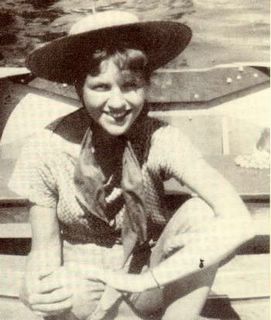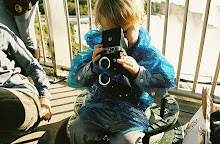Chasing Rabbits


"Now, lying on my back in bed, I imagined Buddy saying,
'Do you know what a poem is, Esther?'
'No, what?' I would say.
'A piece of dust.'
Then just as he was smiling and starting to look proud, i would say, 'So are the cadavers you cut up. So are the people you think you're curing. They're dust as dust as dust. I reckon a good poem lasts a whole lot longer than a hundred of those people put together.' " (56)
The "survey" of American lit class i teach began as a genuine survey. i would start the class reading Hawthorne or Melville and move through Gilman and Wharton to Hemingway and then open up the 20th century. i moved chronologically, thinking i was ready to back my selections up with some modernism/postmodernism scaffolding, but i wasn't. So i switched to a thematic approach. My "American Dream" organizing principle quickly transformed into the "American Nightmare," and the course now reads as a seminar on decadence. i replaced Hemingway with Fitzgerald, but the other "novels"--The Bell Jar, Fear and Loathing, The Virgin Suicides, Letters to Wendys--still fit the semester's narrative arc.
And now Hunter S. Thompson has gone and pulled a Hemingway. Or a Plath. Not quite a virgin suicide, but he has "committed" the act just the same.
Yesterday i began class by wishing my students a happy 21st day of black history month and told them, "Today's the day Malcolm X was assassinated in 1965. Hunter S. Thompson blew his brains out yesterday." i was too depressed to discuss either event, so we jumped right into discussing The Bell Jar. Then we spent 20 minutes getting to a point where they would consider "culture" each time they wanted to say "crazy" while they were oprah-analyzing Esther Greenwood, Plath's self-penned literary doppleganger.
Well, i asked them, what exactly is "wrong" with Esther? "She didn't get accepted into the summer seminar with the famous writer." "Her cheezy boyfriend doesn't take her writing seriously and he wants her to settle down, marry him, and start having babies." "She's obsessed with the fact that she hasn't had sex yet." "She feels bad for the Rosenbergs." "She can't decide if she wants to be 'good' or 'bad'." "She has to spend the summer with her annoying mother whose snoring keeps her awake." "The pregnant neighbor strolls by every morning with her six dirty kids and Esther hates babies." "She's in the English honors program but doesn't know anything about Shakespeare." "She got dosed with some really bad electric shock therapy." "She can only focus long enough to read tabloids." "She can't stop thinking." "She over-analyzes everything." "Eisenhower."
Alright, i say. What if we look for "mythologies," like the kind Roland Barthes was examining in last week's reading, in The Bell Jar? "Well," my conflicted journalism major suggests, "We could see her difficulties with how to go about being a poet as exposing the myth of how women were supposed to behave in the 1950's." At that point, class was almost over.
Before we start with Thompson's book, we'll read Didion's "Slouching Towards Bethlehem" and watch Gimme Shelter. Now that Thompson has performed Hemingway hara-kiri, will my students only be interested in talking about his "issues"? Will they dismiss his social critiques because of his proclivity for drugs and write off his suicide as "depression"?


<< Home